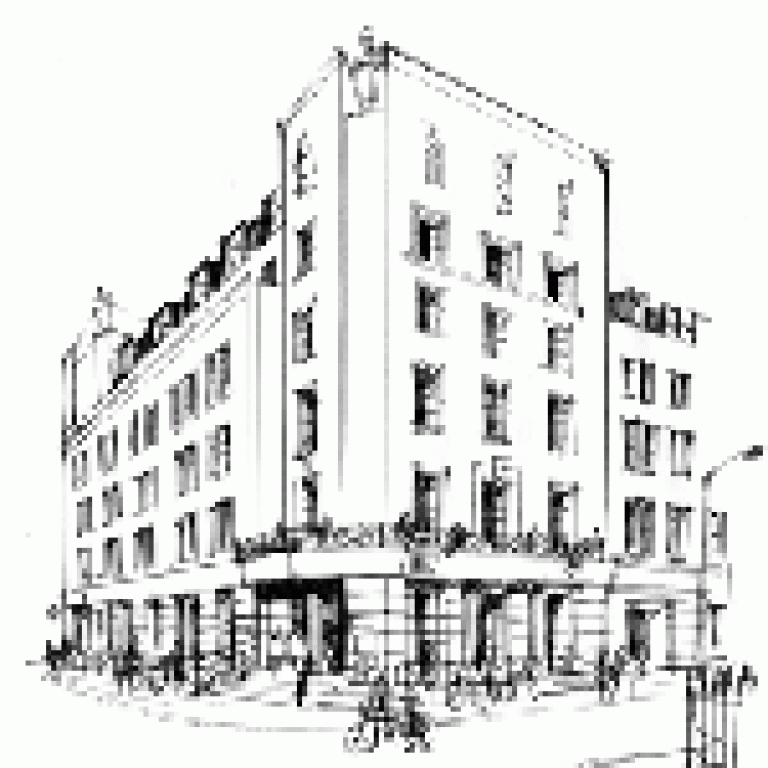UCL Laws professor wins Holberg prize
19 September 2007
Link:
 ucl.ac.uk/laws/academics/profiles/index.shtml?dworkin" target="_self">Professor Dworkin
ucl.ac.uk/laws/academics/profiles/index.shtml?dworkin" target="_self">Professor Dworkin
Professor Ronald Dworkin (UCL Laws), Bentham Professor of Jurisprudence at UCL, will be awarded the Holberg International Memorial Prize for 2007 on 28 November 2007 at a formal ceremony in the Håkon's Hall in Bergen, Norway.
The prize, worth €555,000, is for outstanding scholarly work in the arts and humanities, social sciences, law or theology. Previous winners include the German scholar and public intellectual Jurgen Habermas; Professor Dworkin is the first legal scholar to win.
Professor Dworkin was made an Honorary Fellow of UCL in 2004 and is also a professor at New York University (NYU).
Professor Sandy Shandro, Executive Dean of UCL Laws, commented: "Ronald Dworkin's stimulating presence in UCL Laws, and UCL as a whole, has made a lasting contribution to the way the perennial problems of law, morality and the state are taught and debated here. Most important, he instituted UCL's world-famous interdisciplinary Colloquium in Law & Social Philosophy, the annual joint effort of UCL Laws, UCL Philosophy and UCL Political Science. Over the years it has never failed to generate an extraordinarily high level of intellectual discussion. The format of the UCL colloquium matches the almost identical colloquium at NYU each year, which Ronald co-chairs with Tom Nagel. The topics have always been at the edge of research and the colloquia in both countries have generated a vast number of published papers.
"Since joining UCL in 1984 as Visiting Professor in Jurisprudence, Ronald was half-time Quain Professor of Jurisprudence from 1998 (when he stepped down from his chair at Oxford) and then became our Jeremy Bentham Professor of Jurisprudence in 2005. Since then he has continued to lecture to the undergraduates, graduates and research students, taken LLM/MA seminars and been an inspiration to the research in jurisprudence at all levels, including among the undergraduates. He also contributed to our Cumberland Lodge weekends, participated in the graduate school seminars on interpretation, and chaired one-off seminars, such as one on judicial policy with Lord Chief Justice Bingham in 1994, and one on legal reasoning last year with Judge Michael Kirby, the distinguished member of the High Court of Australia."
Professor Jan Fridthjof Bernt, Chair of the Board of the Ludvig Holberg Memorial Fund, said, "Ronald Dworkin has been a central player in jurisprudence and the social sciences for the last 40 years. His research involves central and topical themes in legal theory, moral philosophy and politics. His critique of traditional legal positivism, in which legal rules are seen exclusively as issued commands, is of particular importance. In opposition to this theory, Dworkin has developed a theory of law which enables legal rules to be understood as norms whose content is the result of an ongoing interaction between political decisions, society's needs and moral considerations."
The citation of the Holberg Prize Academic Committee reads: "Ronald Dworkin has developed an original and highly influential theory of law in which the law is based on ethical principles. His work is characterised by a unique ability to tie abstract philosophical ideas and arguments together with concrete everyday issues in law, moral philosophy and politics. … Dworkin has developed a liberal egalitarian theory that emphasises equality with regard to integrity and respect. … Dworkin's groundbreaking scholarly work has been very important all over the world. He is also a remarkably active participant in public debates about topical political and legal questions."
Emilios Christodoulidis, Professor of Legal Theory at the University of Glasgow, commented: "In the last 30 years Dworkin has left his mark in the philosophy of law to the point where nearly every contribution to the field is either directly or at least indirectly an engagement with his work. … Dworkin's monumental contribution to legal theory is far from his only achievement and his contributions to political philosophy and epistemology have been profound. His willingness to strike out in ever new directions, never shying away from controversy, engaging at both theoretical and practical levels, as philosopher and teacher, tying abstract philosophical ideas with concrete dilemmas in law, morality and politics, have moulded his image as a public intellectual par excellence. …
"It would be doing Dworkin an injustice, however, if one were not to conclude with what is most distinctive about his work: that is the way in which his theory informs his political interventions and his life as public intellectual. He is a passionate teacher, as generations of students in Oxford, New York and London will testify. But he is also an intellectual 'engagé': indicatively only, he is famous for his defence of affirmative action programmes, for his stance against apartheid and for his frequent interventions to protect free speech."
To find out more about Professor Dworkin's prize, use the link at the top of this article.
Image: Bentham House, home to UCL Laws, as drawn by Peter Kent
 Close
Close

